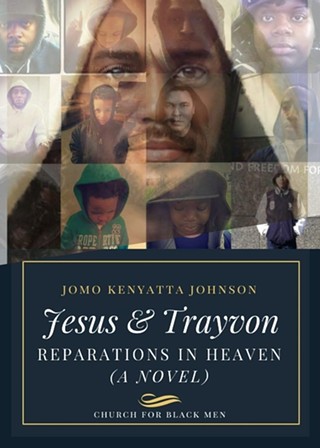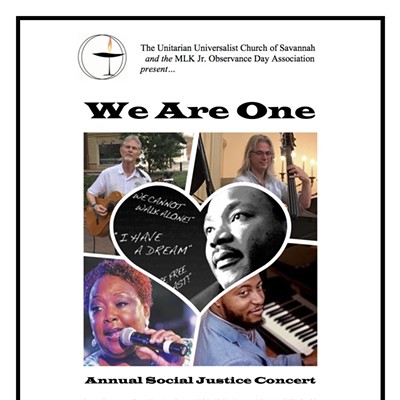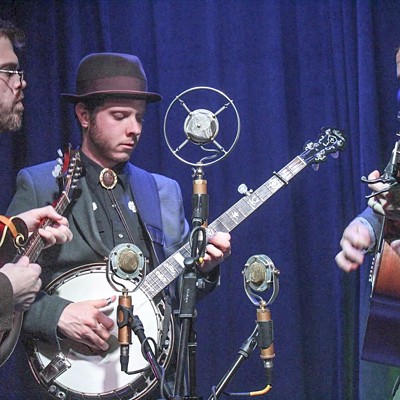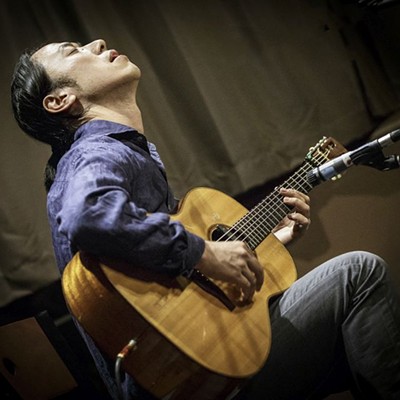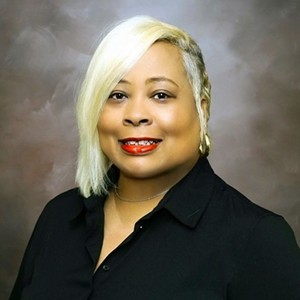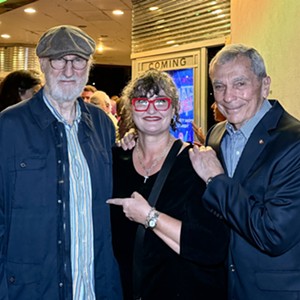STUDIES SHOW that black Christian men are one of the most rapidly declining groups in America. How is this group slipping through the church’s cracks?
Jomo Kenyatta Johnson explores this largely unreached group in his new book, “Jesus and Trayvon: Reparations in Heaven.” Johnson will release the book on Jan. 13 with a reading and discussion at Unitarian Universalist Church.
“Jesus and Trayvon” starts with a powerful, personal introduction and gives way to a celestial narrative of Trayvon Martin, whose 2012 murder brought police brutality among black people to the national consciousness. Martin is led to heaven by Latasha Harlins, who was fatally shot in 1991 by a convenience store owner days after the Rodney King beating.
Johnson holds a Bachelor in Biblical Studies and a Master of Seminary from Westminster Theological Seminary and is one of the founding members of Black Lives Matter Savannah.
We spoke with Johnson last week.
1. How long has this book been in the works for you?I’ve written for about ten years, and it’s something I’ve done off and on when I’m inspired. I’ve been working on this book for about two years—I couldn’t get the storyline and the setting the way I wanted it to be. In the past four months, the content kind of came about.
I had this concept of what happens after death. I was finished with my work with Black Lives Matter, which brought me more face to face with the issues of looking at things through racial and historical perspective.
2. Why did you choose Trayvon Martin as the lead character in the narrative section?I thought the story of Trayvon was contemporary enough. That’s really where the Black Lives Matter movement came from. I wanted to look at it as, is there justice beyond the grave? Trayvon Martin is not coming back in this life right now. For those who have a belief in the higher power, I wanted to answer that question, and also try to bring into perspective if we don’t.
I come from a Christian background and a Christian perspective. The Bible does say that everything we do, it matters and has an impact. I think all of us have a sense of that, and I wanted to paint a picture of what that looked like. I’m glad how the book ended—I don’t want to give it away!—but I’m glad because I didn’t know for a long time how this story would end. There’s justice, but there’s something even greater than justice.
3. In the narrative, Trayvon is led to heaven by Latasha Harlins. How did you choose her to be his guide?I wanted a strong female character, but I wanted her to be a victim as well. Many people don’t realize Latasha Harlins was the actual first Trayvon in 1991. I wanted that type of figure to be in the story. I wanted her to communicate without speaking, almost like a mother’s presence.
4. You quote Doughboy from Boyz n the Hood: “Either they don’t know, don’t show, or don’t care about what’s going on in the hood.” Did you feel that was true while you were going through seminary?I didn’t feel it when I was going through school—I felt it more when I graduated. When I got my first full-time ministry job, I was working in an office 30 hours a week. I thought, is that what we do? Obviously churches are different, but I think primarily, in evangelical church, black and white stay confined to constraints, what goes on in their own buildings. They don’t want to offend anyone or risk anything.
5. What do you hope for this book and this event?My hope is that people will come and listen to the book—it’s about evil and justice and how is that solved. Ultimately, what I hope is that there’s something greater than justice.

